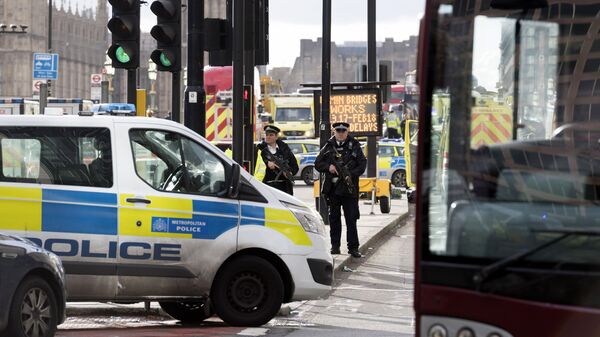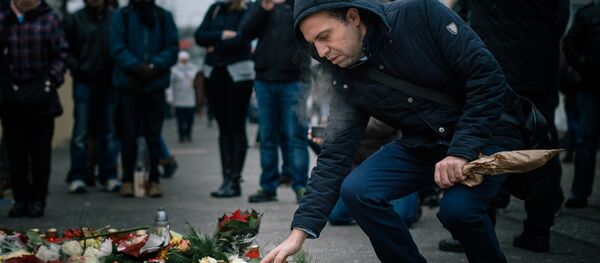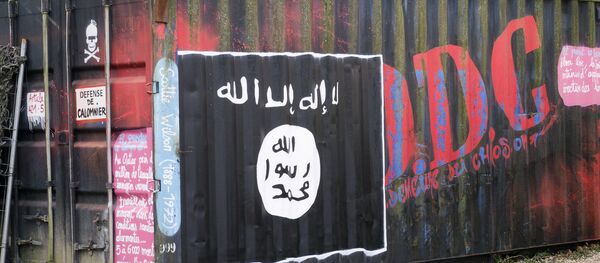The interview came after Reuters reported that the Daesh (ISIL/ISIS/Islamic State) terrorist group had claimed responsibility for the deadly Westminster attack in the British capital earlier this week.
On Wednesday, four people were killed and many others injured after a vehicle drove into a crowd on London's Westminster Bridge near the UK Parliament building. The terrorist was later shot by police after he stabbed an officer inside the Parliament compound.

UK Prime Minister Theresa May said that a British-born man inspired by Islamist ideology, who had been previously investigated by MI-5, was responsible for the attack.
"The threats earlier posed by Islamic State are now starting to be implemented, especially after their actual defeat in Syria. The chain of similar terrorist acts in the largest countries of Europe, such as France, Germany and the UK, indicates that this process is in progress and aimed at intimidating people," Goncharov said.
On July 14, 2016, a truck rammed into a large crowd that was celebrating Bastille Day in Nice. At least 86 people, including children, were killed and over 400 people were injured. The driver was shot dead by police.
On December 19, Anis Amri, a 24-year-old asylum seeker from Tunisia, drove a heavy truck into a crowd at the Christmas market on the Breitscheidplatz square in Berlin, killing 12 people and injuring almost 50 others. A few days later, Amri was shot by police in Milan, Italy.
"It is safe to say that that the European special services are still yielding to terrorists despite the fact that the top terror threat level is still in place in Germany, France and the UK. In this vein, one should ask the special services of these countries why the necessary security measures failed to work," Goncharov said.
He stressed that it is almost impossible to fight lone-wolf terrorists.
"While obtaining information about a group of terrorists is a task that can be fulfilled, tracking a lone-wolf terrorist or a mentally ill person who can wait and see for a long time is a tricky problem," he said.
At the same time, Goncharov said that he does not see the fact that the unarmed policeman was the first to stand in the way of the terrorist in London as an indication of a security breach.
"Any protection of a government building is carried out both by armed officers and unarmed employees who conduct visual surveillance; after all, the terrorist was finally killed by armed police officers," he added.
According to him, special services of different EU countries should really unite in the fight against terrorism, but the current political situation in the EU prevents them from "finding common ground."
Never miss a story again — sign up to our Telegram channel and we'll keep you up to speed!





